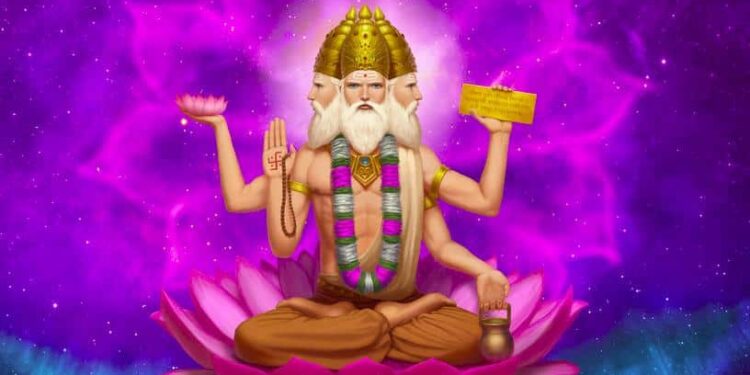Brahma, the creator god in Hinduism, is often overlooked in worship and is not as widely worshipped as other deities like Vishnu and Shiva. There are several reasons why Brahma is said not to be worshipped, and understanding them can shed light on the complex nature of Hinduism.
One reason for the lack of worship of Brahma is that he is not considered to be as powerful or influential as other deities. While Brahma is responsible for the creation of the world and all living beings, he is not seen as having the same level of control over the universe as Vishnu or Shiva. This can make Brahma seem less relevant or necessary to worshippers, who may focus their devotion on other gods instead.
Another reason why Brahma is not widely worshipped is due to his complicated mythology. Brahma is said to have created a daughter named Saraswati, who he became infatuated with. Saraswati was repulsed by her father’s advances and tried to flee, but Brahma grew five heads to better pursue her. In some versions of the myth, Saraswati transforms into a river to escape her father’s advances, while in others, she willingly marries Brahma. This complicated story has made Brahma a controversial figure in Hindu mythology, and many people choose not to worship him as a result.
Finally, the lack of worship of Brahma may also be due to the fact that he is seen as being more abstract or intellectual than other deities. Brahma is often depicted with four heads, each representing a different aspect of knowledge, and is associated with wisdom, education, and learning. While these qualities are certainly valued in Hinduism, they may not inspire the same level of devotion as more emotional or visceral aspects of spirituality, like love or power.
Despite these reasons for Brahma’s lack of worship, it is important to note that he is still revered by many Hindus. In some parts of India, Brahma is worshipped as a major deity, and there are several temples dedicated to him throughout the country. Additionally, some people see Brahma as a symbol of balance and harmony in the universe, and believe that worshipping him can help promote these qualities in their own lives.
In the end, the reasons why Brahma is not widely worshipped are complex and multifaceted. While his mythology, perceived power, and intellectual nature may make him less appealing to some worshippers, others still find value in his teachings and seek to honour him in their own way. Ultimately, the diversity of Hinduism allows for a wide range of beliefs and practices, and Brahma’s place within this rich tapestry of spirituality is just one example of this complexity.



















Discussion about this post